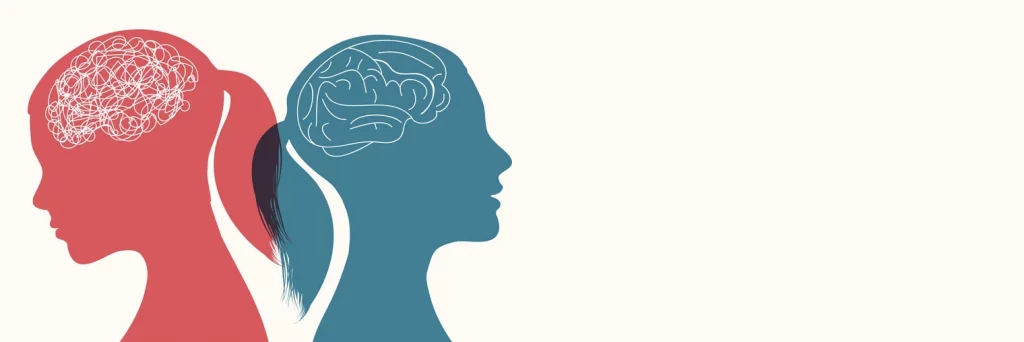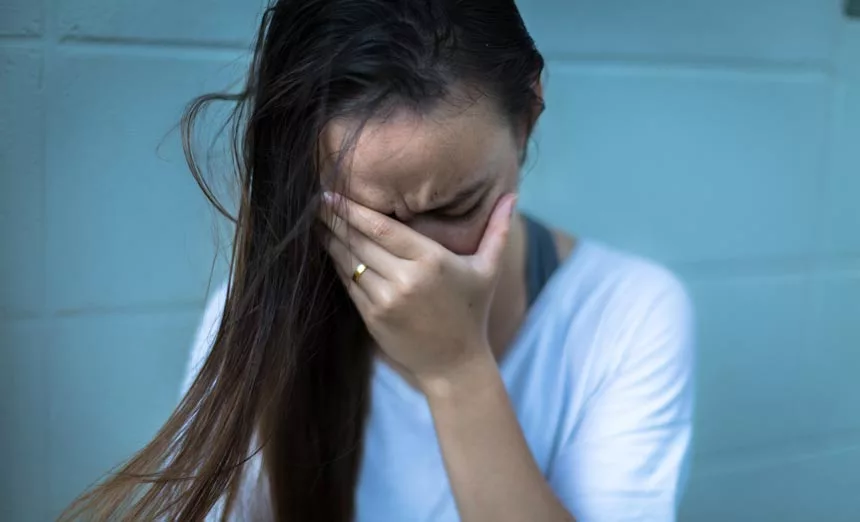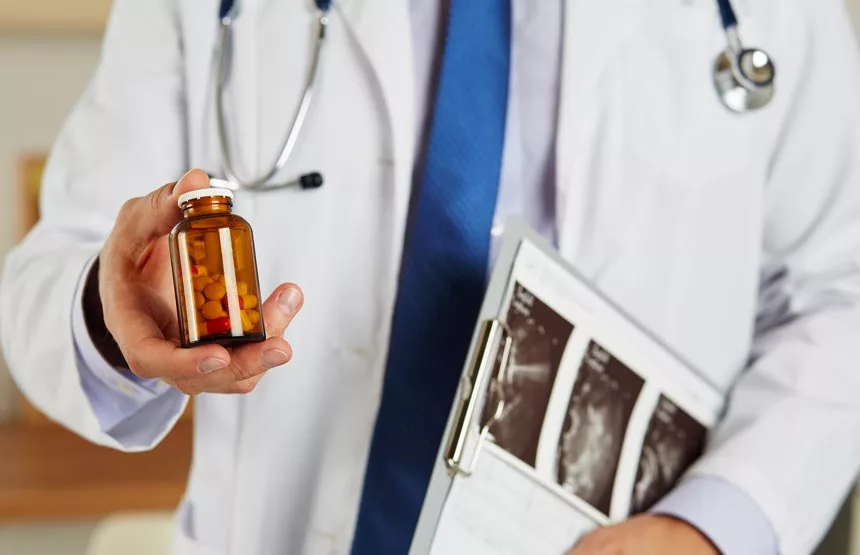What Is Dual Diagnosis?
Table of Contents
- What Is Dual Diagnosis?
- What is Dual Diagnosis Treatment?
- Understanding the Relationship Between Mental Illness and Substance Abuse
- The Most Common Co-Occurring Mental Disorders With Addiction
- Signs of Co-Occurring Substance Use and Mental Health Disorders
- What Makes Dual Diagnosis Treatment Different from Other Addiction Services?
- The Different Types of Dual Diagnosis Treatment Programs
- What to Expect During Dual Diagnosis Treatment
- Why Should I Recover at a Dual Diagnosis Treatment Center?
- Finding Dual Diagnosis Treatment Programs and Other Addiction Services Near You
- Medically Reviewed By
For many people struggling with a drug or alcohol addiction, substance abuse is often not the only problem that is affecting them. These habits are very often accompanied by a simultaneous mental health disorder.
According to the 2020 National Survey on Drug Use and Health, about half of those diagnosed with mental illness will also have a substance use disorder. Currently, around 1 in 4 individuals fit the diagnostic criteria for both a serious mental illness and a substance addiction.
This trend of simultaneous substance abuse and mental health issues is becoming quite prevalent amongst young adults. This is because alcohol and drug abuse typically begins during adolescence, a period where initial development of a mental illness will occur simultaneously.
When struggling with simultaneous mental health and substance use disorders, these are referred to as co-occurring disorders, or dual diagnosis. In order to achieve long-term recovery from addiction, these mental health problems must also be addressed.
What is Dual Diagnosis Treatment?
According to the Substance Abuse and Mental Health Services Administration (SAMSHA), effective treatment for addiction often requires the integration of mental health treatment options due to the prevalence of these dual diagnosis disorders.
This is referred to as dual diagnosis treatment, blending the most effective aspects of substance abuse treatment and mental disorder care. This makes it the perfect recovery option for people who are trying to overcome both a substance addiction and simultaneous mental illnesses.
No matter what type of co-occurring disorders they are struggling with, these treatment programs are designed to provide those struggling with co-occurring disorders with the professional support and care they need.
Understanding the Relationship Between Mental Illness and Substance Abuse
For many people who have a dual diagnosis, it can be difficult to figure out whether their addiction or mental health issues came first. Some people may have already had a mental health issue, while others may feel like their addiction led to their dual diagnosis.
Years of research have not identified one particular reason why people end up with a dual diagnosis. They have, however, found three different factors that they believe can lead to someone needing dual diagnosis treatment.
These include chronic stress, traumatic experiences, and genetics. All of these factors can result in a person’s development of both a substance abuse problem and various mental health conditions.
Furthermore, there are several specific mental health disorders that have been found to make someone more likely form an addiction. This often happens as people will abuse drugs or alcohol in an attempt to treat their mental health symptoms.
This self-medication, while possibly able to provide temporary relief from these painful thoughts and feelings, will only make an individual’s symptoms worse over time. In some cases, substance abuse can lead to the development of mental health issues.
This happens when drugs change the way your brain works in a way that is long-lasting and potentially permanent. Common mental health disorders that may be caused by a long-term alcohol or drug addiction include severe depression and anxiety.
Chronic alcohol or drug abuse can also lead to the development of eating disorders, which can result in a number of negative physical and psychological side effects due to the nutritional deficiencies these can cause.
The Most Common Co-Occurring Mental Disorders With Addiction
There are several mental health disorders that can make someone more likely to abuse and become addicted to drugs or alcohol. These include psychiatric disorders such as schizophrenia, or personality disorders, including bipolar or borderline personality disorder.
In addition to these, some other mental illnesses that are commonly treated at dual diagnosis rehab programs are:
- Anxiety disorders
- Attention-deficit hyperactivity disorder, or ADHD
- Depression
- Bipolar disorder
- Obsessive-compulsive disorder, or OCD
- Post-traumatic stress disorder, or PTSD
- Panic disorders
- Psychotic disorders
Signs of Co-Occurring Substance Use and Mental Health Disorders
It can be difficult for someone to tell if they are struggling with co-occurring disorders, especially if they have never had a mental health assessment. To get a dual diagnosis, the individual will need to seek help from both addiction specialists and mental health professionals.
Some signs that may indicate someone is struggling with both substance abuse and co-occurring mental illnesses include:
- Experiencing breakdowns within interpersonal relationships.
- Struggling to keep up with work, school, or home responsibilities.
- Sleeping during the day, or staying up during the night.
- Using drugs or alcohol to deal with negative thoughts or emotions.
- Using drugs or alcohol to avoid uncomfortable feelings.
- Using drugs or alcohol even though they make you feel depressed or anxious.
- Having one or multiple family members that have been diagnosed with dual disorders.
What Makes Dual Diagnosis Treatment Different from Other Addiction Services?
In contrast to traditional rehab programs, dual diagnosis treatment focuses on addressing both an individual’s drug or alcohol abuse, as well the underlying mental health disorders that may be causing or contributing to their substance use.
The reason why it is so important to seek help at a dual diagnosis treatment center is that, even if you are able to overcome your alcohol or drug abuse, your mental health symptoms will not just go away on their own.
This means that, once you have finished your initial addiction recovery process and leave the guidance and support offered at a treatment center, your mental health condition may make it difficult to maintain this newfound sobriety.
By seeking out specialized dual diagnosis treatment, you will be able to properly identify and address your co-occurring disorder. This will make it much easier to maintain independent sober living upon leaving your treatment center, and better avoid relapse.
The Different Types of Dual Diagnosis Treatment Programs
Dealing with a dual diagnosis can cause problems in your relationships, decision-making abilities, how you behave, your ability to work or attend school, and more. The type of dual diagnosis treatment a person will need depends on the type of mental disorder and addiction they are dealing with.
When receiving both substance abuse and mental health treatment, this may take the form of several different dual diagnosis recovery programs, including inpatient, outpatient, and aftercare treatment programs.
Inpatient Dual Diagnosis Treatment
Inpatient rehab options are one of the most structured and intensive levels of care in addiction treatment. Inpatient dual diagnosis treatment centers will offer the most extensive support for those struggling with both severe substance use disorders and mental illness.
When participating in this type of dual diagnosis treatment program, individuals will live at their specific treatment center throughout the entirety of their recovery process. This will allow them to have regular access to clinical support and supervision, decreasing their risk of relapse.
This will include working with their treatment provider to develop an individualized treatment plan that will best address their addiction and co-occurring condition. Depending on the severity of their disorders, this may include several forms of treatment, including:
- Addiction therapy services
- Medication-assisted treatment
- Nutritional counseling
- Mental health services
- Social and vocational skill training
Outpatient Dual Diagnosis Treatment
An outpatient dual diagnosis treatment center, while less intensive than inpatient options, can offer more flexible and affordable recovery support to those struggling with co-occurring disorders.
When participating in an outpatient program, individuals will not be required to live at their specific treatment center. Rather, this treatment process will typically involve participating in recovery support groups that are hosted at a facility, several times a week.
As a dual diagnosis treatment program, this form of outpatient care will also include mental health treatment, including individual, group, and family therapy services.
This may be extremely beneficial in preventing self-medication through substance use, as recovering individuals are provided the means of discussing their thoughts and feelings in a professional and emotionally supportive environment.
Dual Diagnosis Aftercare Programs
For many people, their addiction recovery process does not end after receiving initial treatment. This is even more true for those struggling with a co-occurring mental health disorder. This is why many of these people choose to continue to attend treatment through lower levels of care.
In these cases, participating in aftercare programs designed to help those struggling with a simultaneous addiction and mental health condition can better support their ability to stay sober. This may be achieved through offering services such as:
- Individual counseling
- Sober living support groups
- Family therapy services
- Relapse prevention services
- Addiction education resources
What to Expect During Dual Diagnosis Treatment
Regardless of what type of dual diagnosis treatment program you participate in, this process will likely follow a general recovery process. The first step, of which, will involve undergoing a clinically controlled alcohol or drug detox.
This allows you to get all of the drugs or alcohol out of your system as safely as possible. The advantage of going through detox at the facility means that you will have the support of trained medical staff to treat your withdrawal symptoms and provide immediate help in an emergency.
Next, your mental and physical state will be assessed. This will help the treatment facility work with you to decide what behavioral therapy treatment path is going to be right for your individual needs.
Every person’s journey will be different but can include the use of medications as well as behavioral therapy. Getting help for both issues makes it much less likely that you will experience a relapse once you have completed your treatment program.
Medication-Assisted Treatment
Medication-Assisted Treatment or MAT uses both medicine and counseling to treat addiction. This approach works great at treating withdrawal symptoms for certain drugs such as opioids, as well as long-term addictions.
Behavioral Therapy Treatment Services
A typical dual diagnosis treatment center may treat your co-occurring disorder through various forms of behavioral therapy. This can help treat the underlying causes of your substance abuse, by helping you to recognize and address the symptoms of your mental illness.
As previously mentioned, this may involve individual, family, or group counseling services. However, the most popular form of therapy often used within dual diagnosis treatment is Cognitive Behavioral Therapy, or CBT.
Cognitive-Behavioral Therapy
Cognitive-Behavioral Therapy works to help clients identify the things that trigger their drug use. Once clients can recognize these triggers, they will learn how to avoid them, or how to deal with them in situations where they are unavoidable.
Contingency Management
Contingency Management or CM gives clients small rewards, such as cash, vouchers, or small gifts, for positive behaviors. This can include going to your therapy sessions, sticking with your treatment plan, and continuing to stay sober after rehab.
Along with behavioral therapy, you will receive treatment for any physical problems that you may be dealing with as a result of your addiction. This can include medications, massage therapy, dental care, fitness training, and more.
Why Should I Recover at a Dual Diagnosis Treatment Center?
Taking a whole-health approach to dual diagnosis treatment gets you in the best possible mental and physical state for being able to successfully complete your addiction treatment process.
This not only helps to make you more likely to achieve sobriety, but puts you in the best possible mindset to continue your recovery journey and maintain abstinence even after you leave your rehab facility.
If you’d like to consult with a team well-versed in the needs of those seeking dual diagnosis treatment, please don’t hesitate to pick up the phone now and call our expert recovery representatives at Find Addiction Rehabs.
We can help you find a range of dual diagnosis recovery choices, as well as help you find the level of insurance coverage you can expect from your current policy, or answer any other financial questions you may have about treatment within minutes.
Finding Dual Diagnosis Treatment Programs and Other Addiction Services Near You
If you or a loved one is struggling with co-occurring substance use and mental health disorders, know that you are not alone, and help IS available. At Find Addiction Rehabs, we help connect people like you with dual diagnosis treatment options that can provide all of your care needs.
Just by picking up the phone and calling our 24/7 hotline now, we can help you get started on your path to achieving sobriety, and re-discovering a physically and emotionally healthier and happier you, today!
Bryan was born in Philadelphia and remains an ardent supporter of Philadelphia sports. After attending FSU and FAU where he majored in writing, Bryan ventured out to follow in the footsteps of his idols, running straight into drug addiction. After being arrested by the President’s Secret Service, Bryan finally started to rebuild his life and beat that monkey off of his back through writing, playing music, and studying Buddhist philosophy.
Despite still having the occasional struggles with mental health, Bryan strives to be a little bit better a person each day. With the support and love from a loyal family, and kind-hearted and generous friends, Bryan tries to help people vanquish their own personal demons as he did and bring more love and beauty into a pessimistic world.








